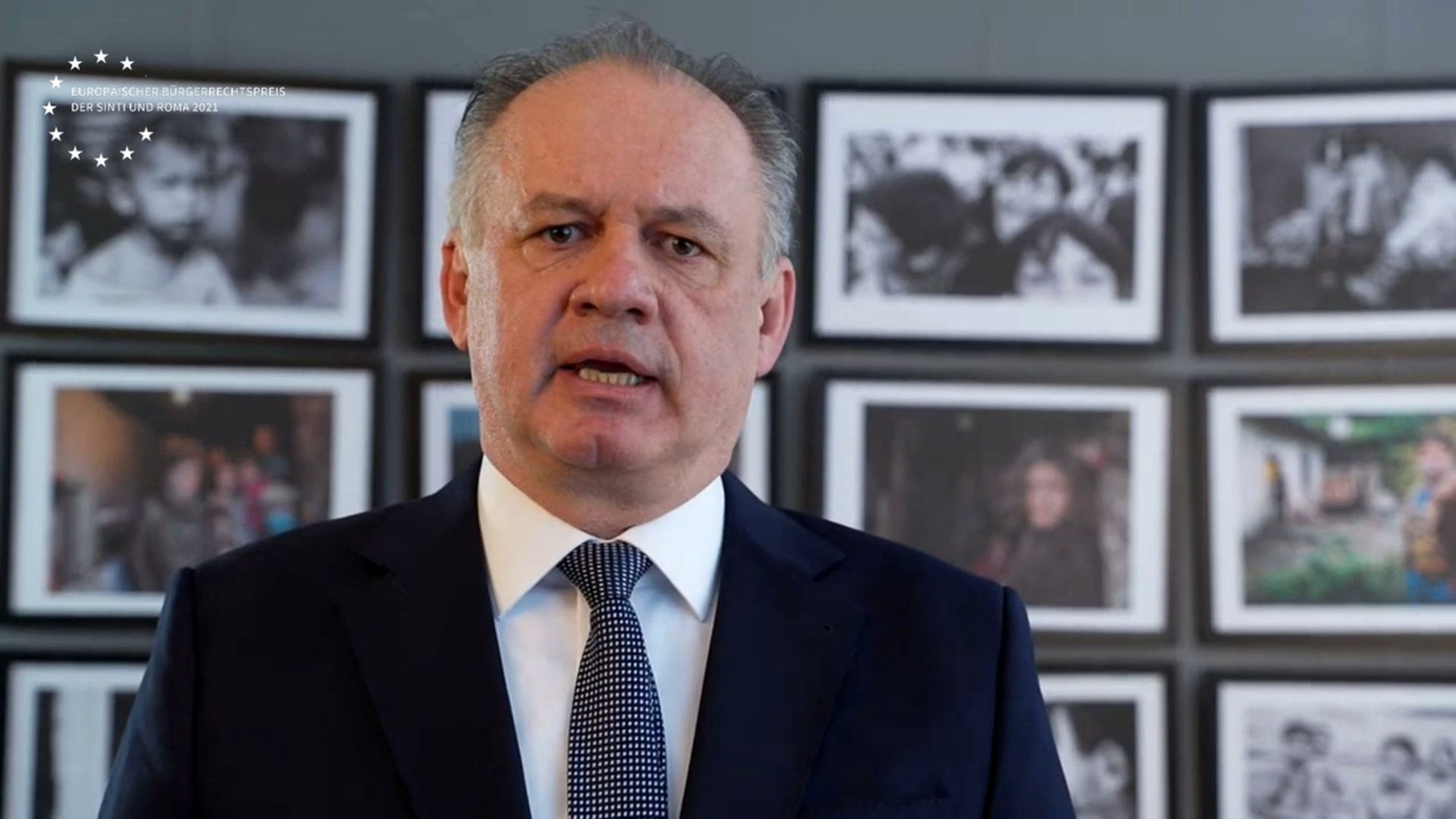
Dear Madam Kappler,
thank you for a generous introduction to this very special event.
We are meeting today at the award ceremony for an extraordinary laureate of a unique prize.
A laureate who has substantially contributed to the recognition of the genocide of Roma by the Nazi-Regime and their allies during World War II that has been largely ignored by the politics, by the broad public and not taught in schools.
A laureate who has been upset by the fact that “far too little attention has been paid for far too long” to their wartime suffering.
A laureate who has so eloquently requested that silence at sites of extermination and respect to victims must not be our only response: “We must remember the crimes that were committed and name them clearly.” Especially “in a time when Roma and Sinti continue to be targets of right-wing attacks and suffer from discrimination and exclusion”.
We all realize how timely these words are after the corona virus outbreak that has attacked our societies at their core. The devastating impact of the pandemic has been particularly destructive to vulnerable social groups. Roma families and children, especially those living in segregated or separated settlements, have been exposed to economic and social disruption: many parents have lost their scarce jobs, children who do not own laptops could not manage distance learning, and inhabitants in quarantined communities could not leave to buy groceries.
We are also privileged to be here today in the presence of the pioneers and friends, . Romani Rose and Manfred Lautenschläger, who have helped to anchor a very simple, but crucial principle into the public sphere: Roma Lives Matter.
Dear Madam Chancellor,
we all know how much determination and energy you have invested over the last years in your efforts to help the German society remember the tragic past and care about a better future of Roma. And not only in your homeland, because as you rightly say, it is both “a German and a European task”.
Yes, indeed, Roma Lives Matter.
But to achieve this goal – that Roma lives, as well as Jewish lives, the lives of homosexuals, persons with disabilities, of refugees, that all those lives matter – this goal requires an exceptional leader. A politician who “takes decisions based on data, statistics and facts”, as your biographer said. And let me tell you what some Slovak scientists, your colleagues in late 80-ies in the field of chemistry would add. They see in you, Madame Chancellor, not only someone who can „brilliantly analyze and synthesize facts, conceive ideas and offer a vision“, but also a person who is a compassionate partner with whom they could talk on issues of life and politics.
In other words, a leader with a beating heart.
Ladies and gentlemen,
Dear Friends,
Madam Chancellor,
As a president caring for Roma I have seen poverty, segregation and prejudices. In the eyes of Roma parents in the settlements, I have seen the desire for their children to live a better life. I remember the parents of a little girl asking me to test her knowledge of English because they desire their daughter to have a good education and a better life.They wanted to break the vicious wheel of poverty.
I have witnessed the encouragement of success stories, witnessed of exceptional people denying the widespread belief that nothing can be done and that no one wants to do anything about it.
I gladly admit that together with many others serving in highest positions, we have been looking at your example. The example of a leader who is not turning her back to difficult questions. Who listens and then comes back with achievable solutions, arguments and patience. Who does not follow anger, frustration or helplessness.
It was Henry Kissinger who asked: „Who do I call if I want to call Europe?“
For us, it was clear: it is our dear laureate, Europe’s singular and most important leader, a prominent figure on the world stage.
We are happy that you are with us in this world marked by a coincidence of various crises and emerging challenges. And we will never forget all that you have done for Roma and Sinti, for nations and peoples exposed to oppression and neglect, for Germans in East and West, for European liberal democracy, for a better world.
Berlin / Bratislava 28th of April, 2021
